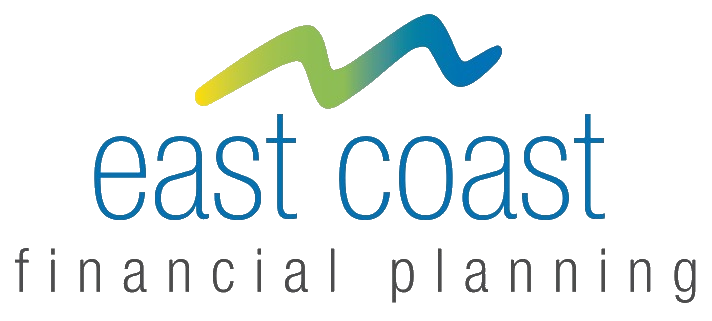Navigating GST rules and requirements can be a minefield, particularly if you’re new to the small business world.
When to register, what to claim, how to claim — if you’re not sure, it’s easy to make mistakes and land on the wrong side of the ATO.

Here are eight easy-to-miss GST errors that could trip you up:
Not registering for GST on time
In Australia, you have to register for GST if your turnover exceeds $75,000 per annum.
If you’re a taxi or rideshare driver, you have to register whatever your income level.
Once registered, you must collect 10% tax on taxable sales and pass it on to the ATO. You can also claim the GST on business-related purchases and expenses when you’re registered.
According to the ATO, if you’re aware that your business has gone over the threshold — or is likely to go over — you must register within 21 days.
Fail to register, and you could be forced to pay GST on previous sales, which could impact your profitability.
You reach the GST turnover threshold if either: your current GST turnover — your turnover for the current month and the previous 11 months — totals $75,000 or more ($150,000 or more for non-profit organisations); Or your projected GST turnover — your total turnover for the current month and the next 11 months — is likely to be $75,000 or more ($150,000 or more for non-profit organisations).
Want to know exactly how your turnover is tracking? A digital accounting platform like MYOB is the easiest way to ensure every transaction is captured and categorised, so you know what you’re earning and when to register.
Incorrectly claiming GST on expenses
Not all purchases are eligible for a GST tax credit. For example, you can’t generally claim GST on overseas purchases, bank fees and interest on loans, or services from businesses that aren’t GST-registered.
Naturally, you can’t claim GST on non-business (expenses of a private nature) purchases either – so take care when you’re making a claim.
If you’re not sure about potential GST claims, check with your accountant or bookkeeper.
Forgetting personal use of business purchases
As with general tax deductions, you can only claim GST back on purchases used in your business.
It gets complicated when your items have both business and personal use — like driving your work vehicle on weekends.
If this is the case, you must work out the split between business and personal use and only claim for the proportion that relates to your business.
Overlooking regular GST reconciliation
GST reconciliation is a way of checking that you’re calculating and reporting GST accurately.
For example, if your bank records don’t match your sales data, you could have unrecorded income and GST.
If you reconcile regularly — or use an accounting platform that can do it for you — you can identify discrepancies early, and sort them out before they become bigger issues.
Not considering your accounting method
There are two main ways to account for GST, depending on when and how your business operates.
If you choose the payments (or cash) method, you account for GST in the taxable period when you receive or make a payment.
Under the invoice (or accruals) method, GST is counted in the period when an invoice is created — even if payment isn’t made at the same time.
For small businesses, the choice can be significant, as paying a GST bill before receiving payment for an invoice could cause cash–flow issues.
MYOB supports both methods, letting businesses choose the best fit and adjust as necessary.
Forgetting to update your business type
As your business evolves, its structure does too — and your GST registration may need to change.
For example, if you’re a sole trader turning your venture into a company, you may need to cancel your GST registration and re-register with your new ABN (Australian Business Number) to avoid compliance issues or confusion.
Speak to your accountant or bookkeeper to ascertain the best operational structure and timing for this change. MYOB allows easy updates to business details, ensuring the GST entity type always matches the current business structure.
Claiming GST on salary or super
Another EOFY common mistake is claiming GST credits for salary or super payments to staff.
While these costs are obviously related to your business, you don’t pay GST on salaries (unless it’s via a labour hire company or contractors) or superannuation, so you can’t claim it back as a business expense.
Trying to claim without a GST invoice
When you make a business-related purchase of more than $82.50 (including GST), you should receive an invoice that includes the date, price, goods or services, and the amount of GST paid.
When you claim GST credits at the end of the month, quarter or year, you must include these invoices (not the paperwork itself) as part of your BAS.
If you don’t receive an invoice with your purchase, you can go back to the business and request one — they must send you a valid invoice within 28 days of your request.
Keep GST under control
Are your accounting systems making it harder to manage GST in your business?
If you’re using disconnected manual processes to manage your finances, it’s easy to lose track of deadlines, miss invoices, and make mistakes in your returns.
With MYOB accounting software, bookkeeping becomes a seamless part of your day-to-day operations, keeping GST obligations front and centre.
By tracking expenses, generating client invoices, and helping reconcile sales and GST reporting, it simplifies what can be a complicated and time-consuming process.
Want to avoid EOFY common mistakes when it comes to GST? Find out how to do it with MYOB.
Source: MYOB May 2024
Reproduced with the permission of MYOB. This article by MYOB Team was originally published at https://www.myob.com/au/blog/8-eofy-common-mistakes-smes-make-with-gst/
Important:
This provides general information and hasn’t taken your circumstances into account. It’s important to consider your particular circumstances before deciding what’s right for you. Although the information is from sources considered reliable, we do not guarantee that it is accurate or complete. You should not rely upon it and should seek qualified advice before making any investment decision. Except where liability under any statute cannot be excluded, we do not accept any liability (whether under contract, tort or otherwise) for any resulting loss or damage of the reader or any other person.
Any information provided by the author detailed above is separate and external to our business and our Licensee. Neither our business nor our Licensee takes any responsibility for any action or any service provided by the author. Any links have been provided with permission for information purposes only and will take you to external websites, which are not connected to our company in any way. Note: Our company does not endorse and is not responsible for the accuracy of the contents/information contained within the linked site(s) accessible from this page.




